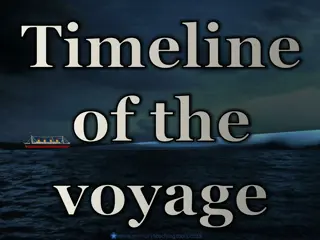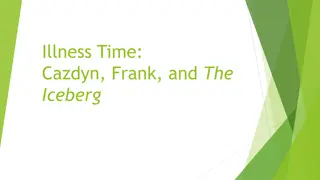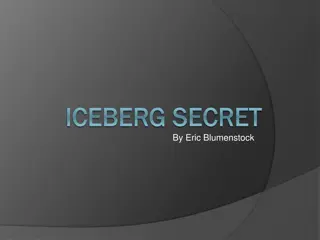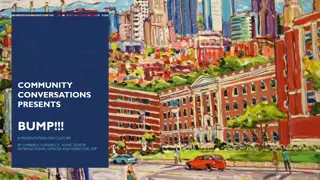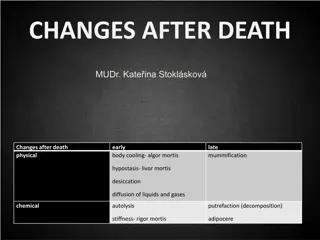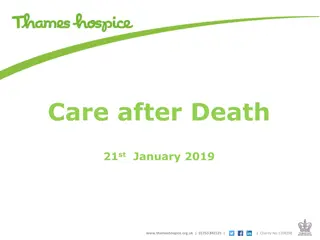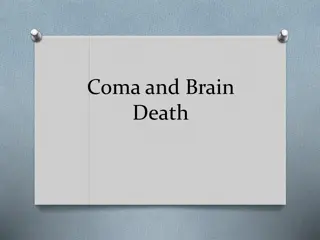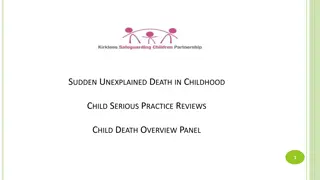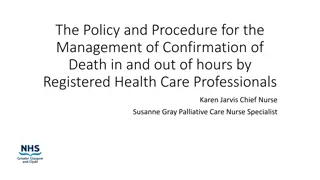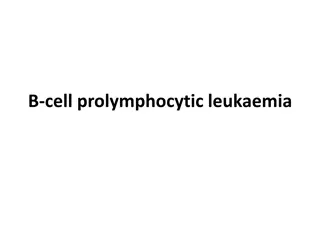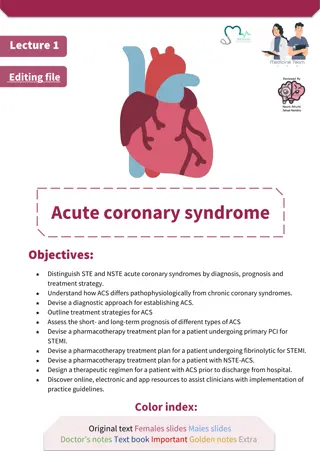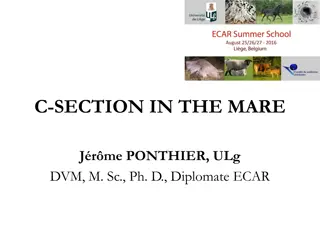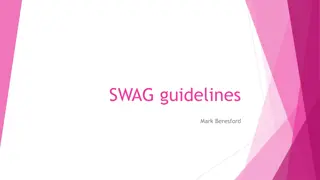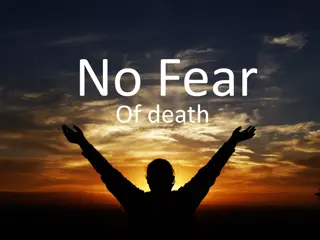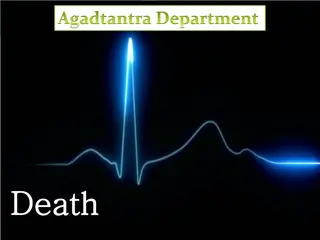Reflections on Time, Life, and Death in "The Iceberg" and "Living in Prognosis
The texts explore the intertwining themes of time, life, and death through personal narratives and critical analysis. "The Iceberg" delves into the urgency of facing the future, while "Living in Prognosis" challenges traditional views on time and mortality, presenting a poignant reflection on the impact of cancer. Through various perspectives, the works invite contemplation on the complexity of human existence and the inevitability of mortality.
Download Presentation

Please find below an Image/Link to download the presentation.
The content on the website is provided AS IS for your information and personal use only. It may not be sold, licensed, or shared on other websites without obtaining consent from the author. Download presentation by click this link. If you encounter any issues during the download, it is possible that the publisher has removed the file from their server.
E N D
Presentation Transcript
TIME AND THE ICEBERG
The Iceberg A book about the future must be written in advance. Later I won t have the energy to speak. So I will do it now. (Coutts 5) [w]e have had a diagnosis that has the status of an event (Coutts 6) [t]here is not time for anything to be saved. There is no time for anything to sink in. There is no time (Coutts 7) "we continue in the same way as before but in parenthesis (Coutts 19) [i]t is February but the future has arrived early. Tom has a severe fit (Coutts 46)
Sarah Lochlann Jain, Living in Prognosis: Toward an Elegiac Politics (2007) Cancer is creepy. After it shows up one realizes that it must have been there for a while, [ ] (80) living in prognosis severs the idea of a time line and all the usual ways one orients oneself in time: one s age, generation, and stage / in the assumed lifespan. (80-81) This relation to time makes death central to life in prognosis, death as an active loss as if there were some right to a certain lifespan rather than just something that happens to everybody at the end of life. (81) Furthermore, prognostic time constantly anticipates a future. In this sense, it offers us a similar logic to the one that bids us to sock away money in retirement plans. But despite this familiarity, it is offered at a level of abstraction that is virtually impossible to grasp. [historical medical archives/ records of cancer] In these archives, the end comes first, the punch, the punch line of the future is dissipated, dissolved into the past we know the end of the story even as we read through it from the beginning. The temporality echoes the double action of prognosis: causing and evacuating the terror of a potential future. (81)
Jain cont. Donne s Holy Sonnet Six, in which death is nothing but a breath a comma separates life from life everlasting. . . . death is no longer something to act out on a stage, with exclamation points. It is a comma, a pause (Margaret Edson, W;t (New York, 1999), 14 15). The pause indicates the blip between time lines the one that leads toward an ineluctable death, and the other in which there ineluctably is no death. [ ] the comma, for Bearing [the academic and cancer patient in the play and film Wit], simultaneously carries significance and mystery equal to impending death. (81) In elegiac politics, prognosis emerges as a technology of mourning, holding together the future and the past. Prognosis stands as a small monument to those who will not make it through the five- and ten-year marks. Offered in factual form, prognosis holds the counterfactual: life or death. But for all the promise of validated counterfactuals, time in elegy wraps itself around the subjective life and death of each of us who passes through the timeless grammar and promise of cure, compensation, and the captured youth of a photograph. (89)
John Donne, Death, be not proud Margaret Edison, Wit Death, be not proud, though some have called thee Mighty and dreadful, for thou art not so; For those whom thou think'st thou dost overthrow Die not, poor Death, nor yet canst thou kill me. From rest and sleep, which but thy pictures be, [ ] One short sleep past, we wake eternally And death shall be no more, Death, thou shalt die. [And death shall be no more; Death, thou shalt die.]


